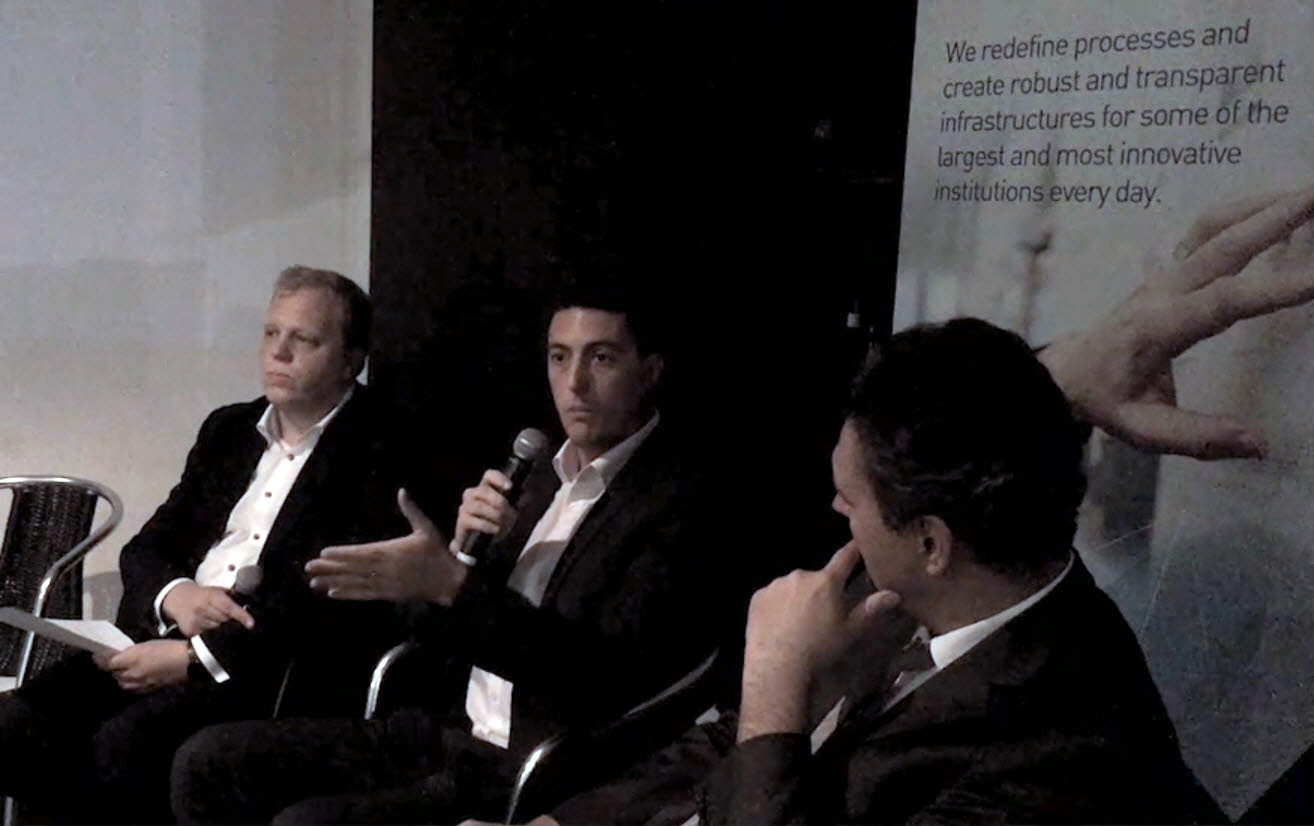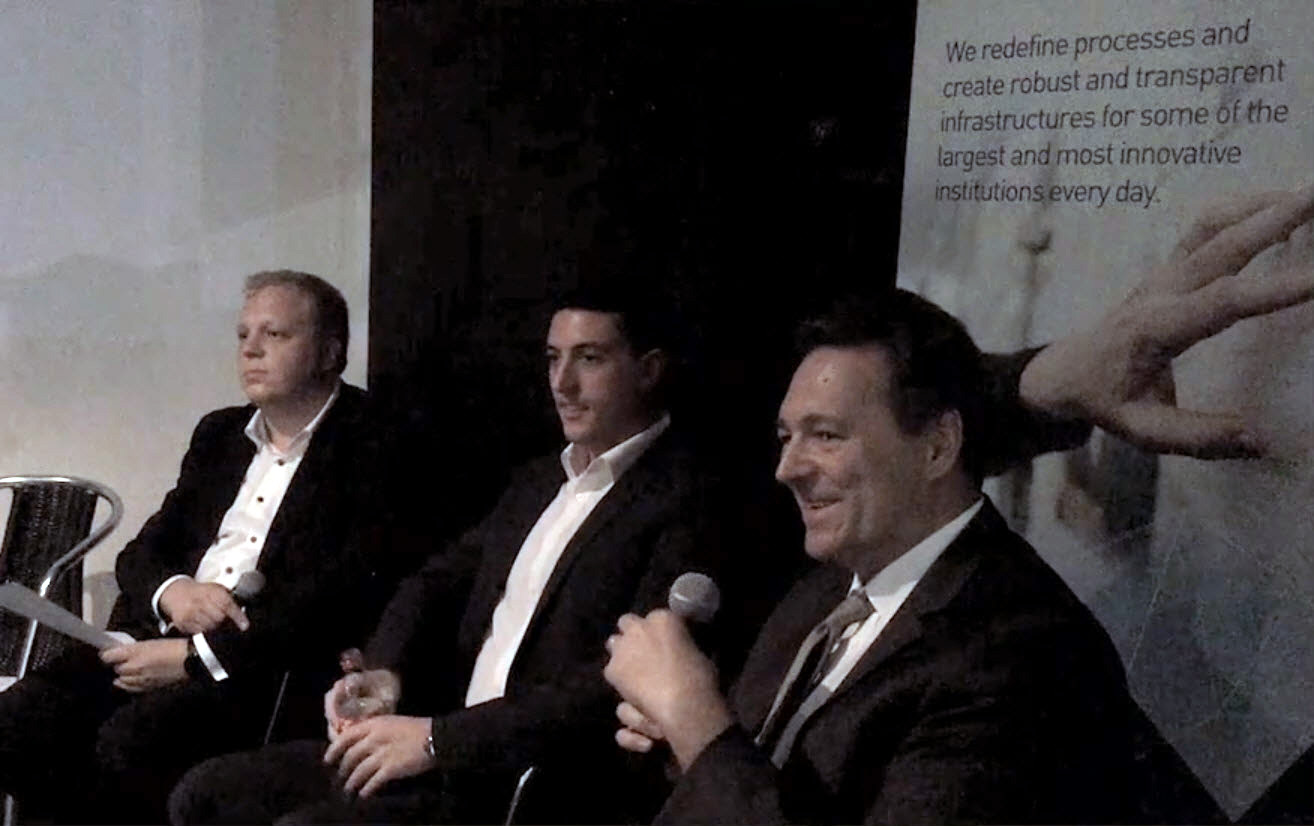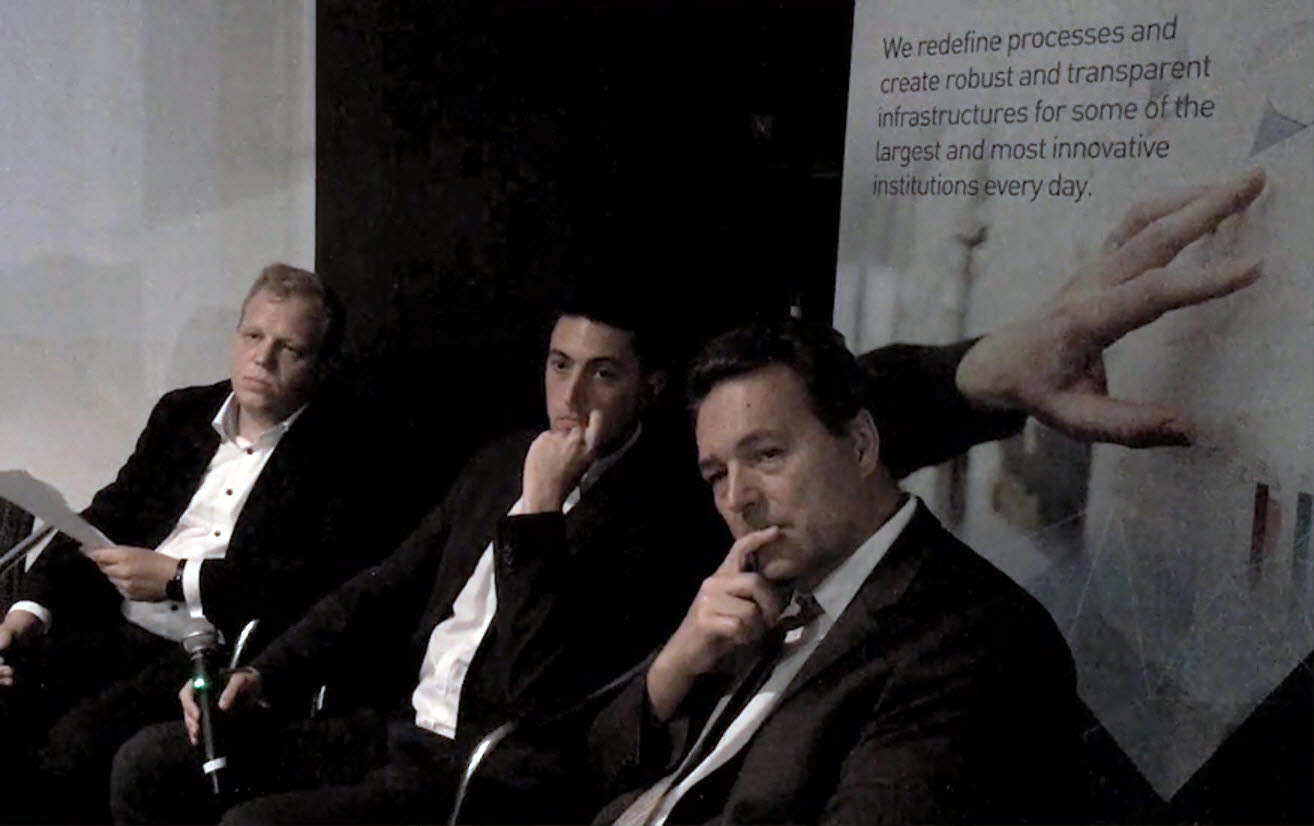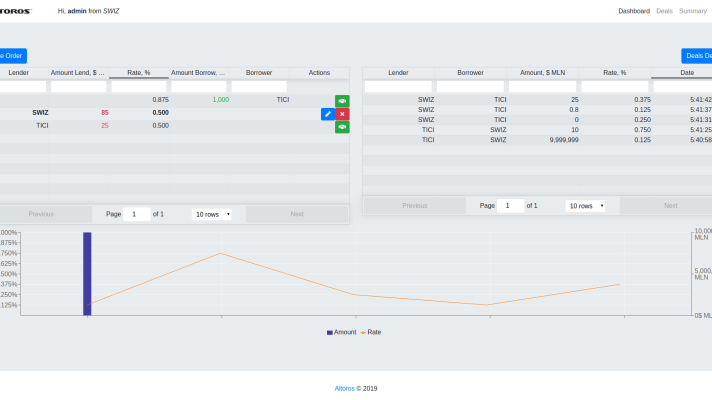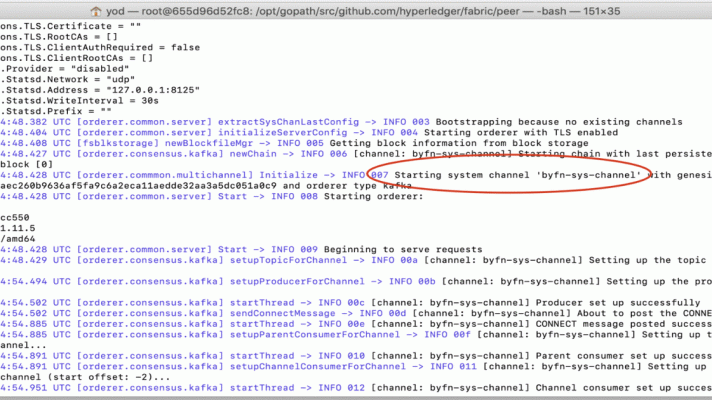A Panel: Cooperation Is Key for Blockchain Development in Finance

A recent Hyperledger meetup in Frankfurt continued to ongoing discussions around the adoption of blockchain in finance. Previous panels have focused on issues with the blockchain itself and predictions for the future. This time, Olivier Roucloux of finoryx and Francesco Pisani of EY talked about cooperation, changing business models, and ways to deal with regulators.
Adoption might be slow, but it’s still fast
When we talk about the adoption of the Internet, we’ll often use the example that it started in the 90s. That’s not accurate, development of the Internet started 30 years before that. Francesco brought up the comparison between the adoption of the two technologies saying, “If we talk about the development of blockchain, we should start at 2008 or 2009. We’re just a few years after that. The development of blockchain is way faster.”
Despite having a faster rate of adoption, both Olivier and Francesco agree that predictions on broader blockchain adoption within the next few years are very optimistic. Blockchain delopment has one thing going for it, it’s already backed by billions of dollars.
“We have the involvement of groups of large companies and large banks. When the development of different technologies in the past was happening, you always had a couple of leading companies pushing that forward,” said Francesco. “Right now, we already have a consortium. We have already accomplished pushing millions into that, and that’s where, I believe, this is going to push development forward and faster.”
“The main point we discovered is that FinTech will play a major role in (blockchain) development.
—Francesco Pisani, EY
Barriers to adoption
At this point in development, it’s already clear that these are the main hurdles to blockchain:
- added value
- standards
- regulations
It’s not just about replacing technology and using blockchain. “You have to look at the business process. The business process can be changed to add value,” said Olivier. “They key to success is to bring an additional business value to the solution while reducing the cost. That’s the only way you can make blockchain efficient in a business scenario.”
“The mistake is to take one technology, remove it, and put blockchain instead.”
—Olivier Roucloux, finoryx
Having common standards have continuously been brought up in the blockchain development, especially within the Hyperledger Project and Ethereum. “There are big companies right now launching their own digital currencies,” said Francesco. “Those are great applications of this technology, but at the same time those applications should be standardized.”
“It’s good to have a common standard in technology. If you don’t have the business standards, it doesn’t work.” —Olivier Roucloux, finoryx
Resistance from regulators is probably the biggest obstacle to the adoption of blockchain. “Blockchain was thought to be something that could just be there and could not be changed,” said Francesco. “This is not something that’s going to work in the real world, because you have institutions like banks. Banks do not want to lose control, especially because there are regulations and they have a systemic role in society.”
“The main barrier to adoption is the standards. but at the same time there is also resistance from regulators.” —Francesco Pisani, EY
How do we overcome this?
One of the avenues that can speed up the adoption of blockchain is to focus on niche applications (read our post on this). “There are some pockets of markets, some niche markets where operational cost is not in cents, but in euros,” said Olivier. “That’s where you have really good examples like transparencies.”
“We are in an evolution where a lot of companies are creating a niche.” —Olivier Roucloux, finoryx
Rather that look for ways to disrupt and make regulators obsolete, blockchain developers should instead look at potential angles to include/integrate them in the process. As an example, Olivier suggested a potential role for SWIFT in a blockchain as “the standardization authority not only on the message definition, but also on the code of the smart contract. The smart contract created by SWIFT can talk to any smart contract to make the transaction reliable from end to end.”
“There is the need for standardization. There is the need to find a way how to apply this to the financial industry, which is regulated and controlled.” —Francesco Pisani, EY
Finally, it’s about ecosystem and flexibility. It’s not just the developing communities that are going to contribute to the future of blockchain in finance, it’s also the existing groups and organizations in finance.
“I like the fact that FinTechs like Ripple change their minds completely. Instead of disrupting the industry, which was the word used a couple of years ago, now they want to work with you.”
—Olivier Roucloux, finoryx
Cooperation is what’s going to push the development and the adoption of blockchain forward. There isn’t just one way to develop a blockchain, but to make one successful, it’s clear that developers and regulators have to be involved. As Olivier put it, “Blockchain is a community. If you launch it alone, it doesn’t make sense.”
Want details? Watch the video!
Table of contents
|
Related presentation
Prior to the fireside chat, Elke Kunde of IBM delivered a technical introduction to Hyperledger.
Further reading
- Fireside Chat: Blockchain Security, Scalability, and Energy Consumption
- The Royal Bank of Scotland Builds a Hyperledger Digital Wallet: the Lessons Learned
- Opinion: The Impact Blockchain Can Bring upon Finance and Banking and How It May Happen
- Managing Risk and Building Trust for Blockchain in Finance
About the experts



